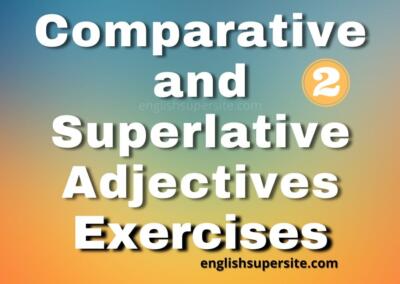
Grammar
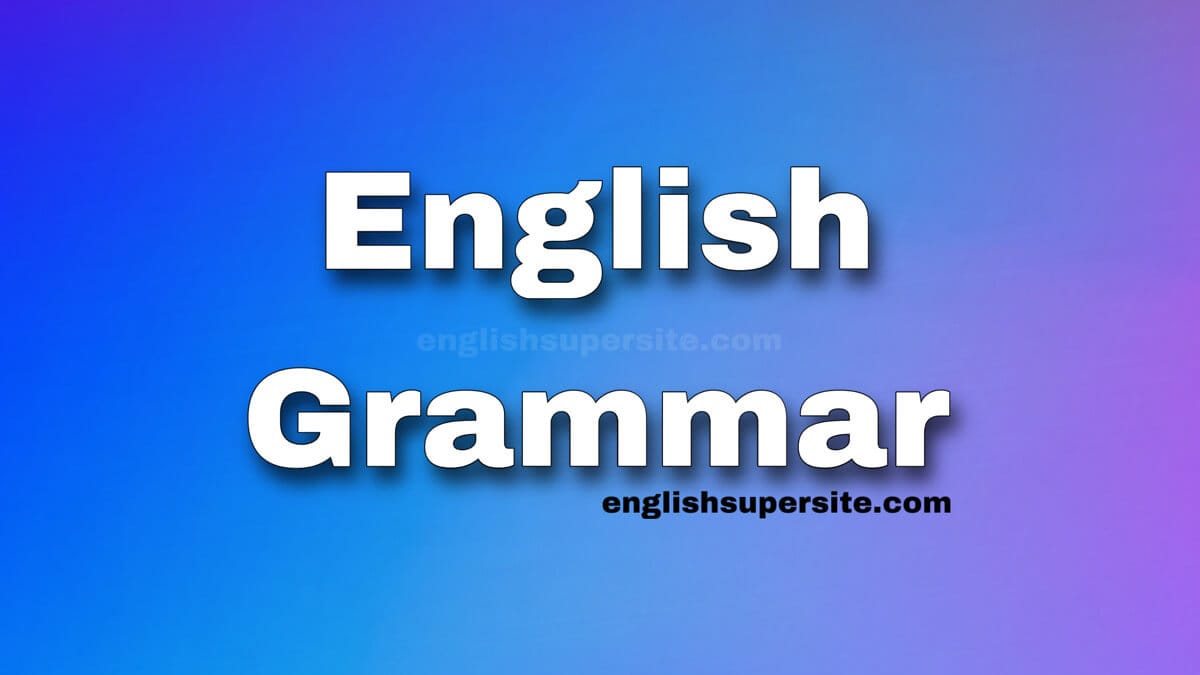
English Grammar: Master the Structure of the Language
English grammar consists of 8 parts of speech: nouns, pronouns, verbs, adjectives, adverbs, prepositions, conjunctions, and interjections. Each part plays a key role in forming sentences, conveying meaning, and expressing ideas. Understanding grammar helps you build sentences that are clear and meaningful.
The study of English grammar focuses on sentence structure, parts of speech, and punctuation. It’s essential for effective communication and is closely related to linguistics, the broader study of language structure.

Comparative and Superlative Adjectives - Exercises 2 - Practice exercises with Comparative and Superlative ...
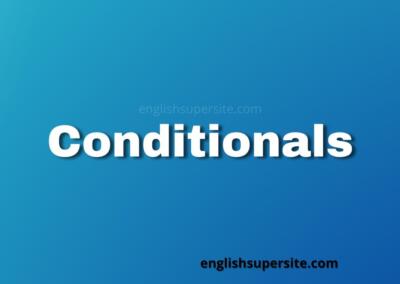
Conditionals are sentences that express hypothetical situations or describe an outcome based on a certain condition.
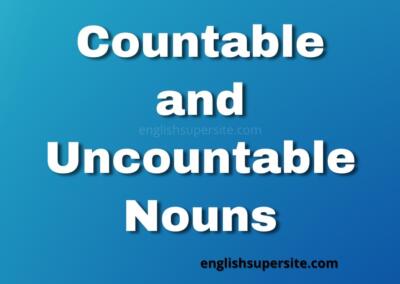
Nouns can be countable and uncountable. Learn here, the difference between countable and uncountable nouns! Learn ...
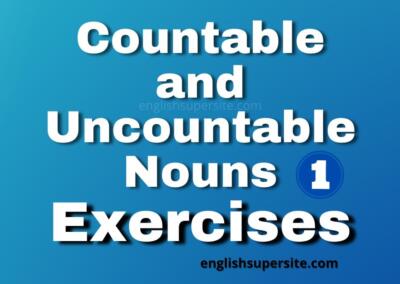
Countable and Uncountable Nouns - Exercises 1 - Practice exercises with countable and uncountable nouns. Countable ...
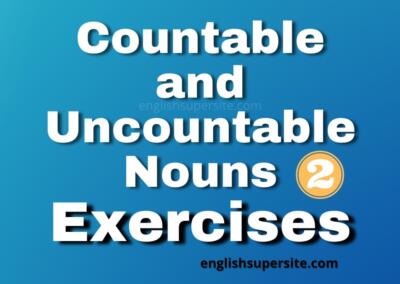
Countable and Uncountable Nouns - Exercises 2 - Practice exercises with countable and uncountable nouns. Countable ...

Learn when to use Do or Make. Understand the differences between DO and MAKE. Study and practice exercises using ...
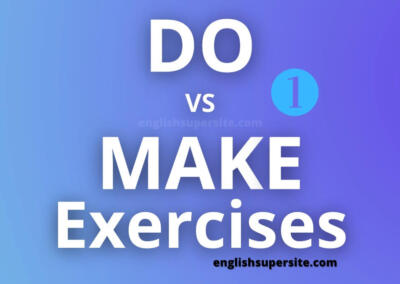
Do vs Make - Exercises 1 - Quiz - Learn when to use Do or Make. Understand the differences and when to use Do and Make.
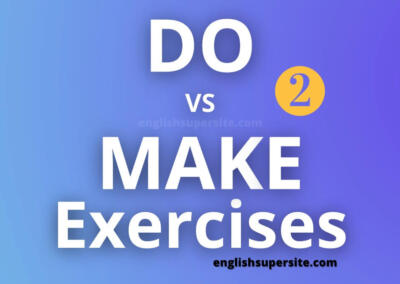
Do vs Make - Exercises 2 - Quiz - Learn when to use Do or Make. Understand the differences and when to use Do and Make.
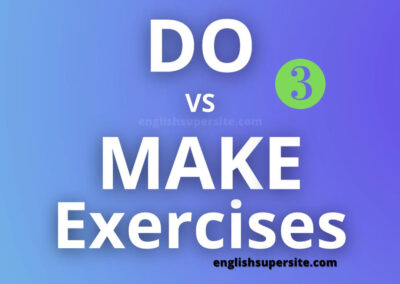
Do vs Make - Exercises 3 - Quiz - Learn when to use Do or Make. Understand the differences and when to use Do and Make.
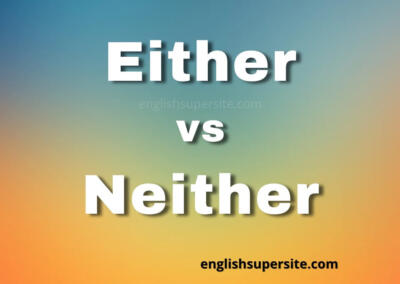
EITHER vs NEITHER - Either or Neither! When and how to use Either and Neither! Study and learn the differences ...

When to use Fill up or Fill in or Fill out. Here you will understand the difference between them and how to use ...
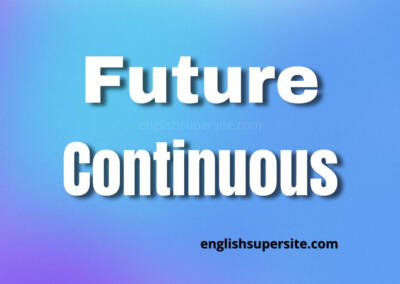
Sometimes called Future Progressive, the Future Continuous is one of the verb forms associated with the Future ...
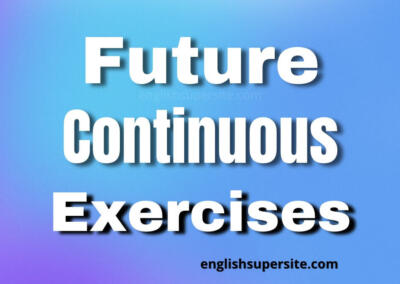
Verb Tenses - Future Continuous - Exercises - Practice exercises with Future Continuous. Improve your oral and ...

We use Future Perfect when you want to speak about an event that will be completed before a particular time in the ...
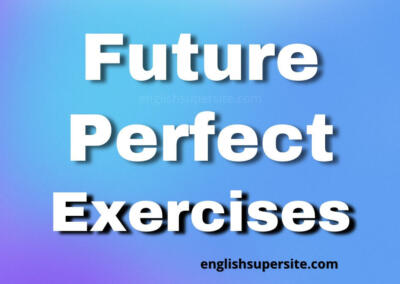
Verb Tenses - Future Perfect - Exercises - Practice exercises with Future Perfect. Improve your oral and written ...
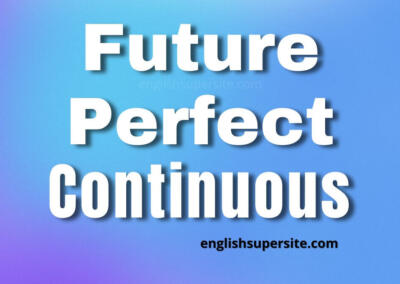
We use Future Perfect Continuous when you want to speak about an event that will happen and continue in a ...
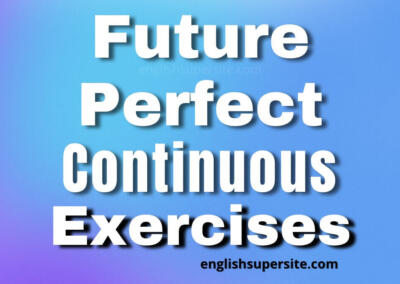
Verb Tenses - Future Perfect Continuous - Exercises - Improve your oral and written skills with exercises and ...
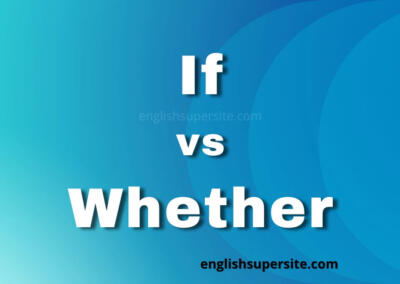
If vs WhetherThe use of If vs Whether.If or Whether? They are both both conjunctions and used in ...
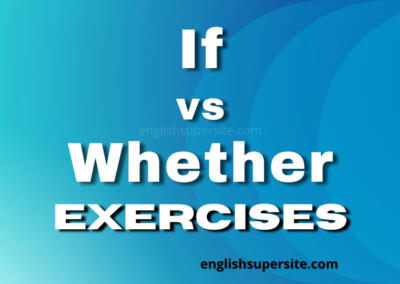
If vs Whether - Exercises - Improve your written skills by practicing these exercises. Complete the sentences ...

Learn when and how to use the prepositions IN, ON and AT. Understand the differences and why you should use them ...
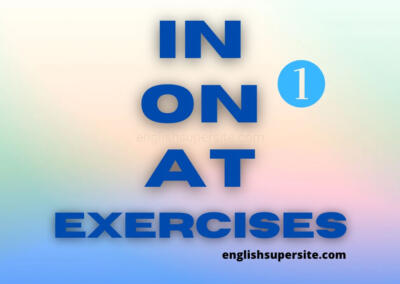
EXERCISES 1 - IN - ON - AT - Practice using the prepositions IN, ON and AT. Complete the sentences below with the ...
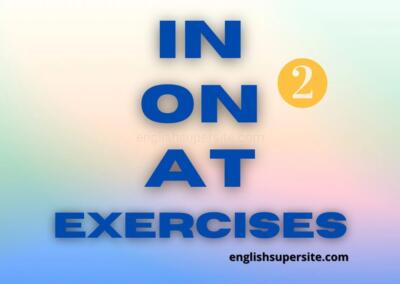
EXERCISES 2 - IN - ON - AT - Practice using the prepositions IN, ON and AT. Complete the sentences below with the ...
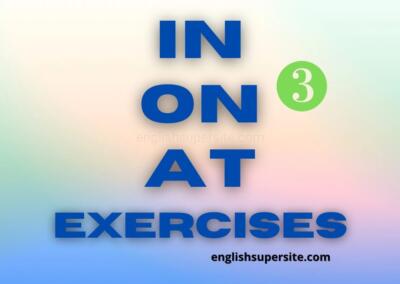
IN - ON - AT - Exercises 3 - Quiz - Practice using the prepositions IN, ON and AT. Complete the sentences below ...
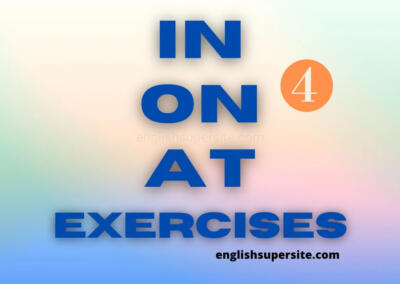
IN - ON - AT - Exercises 4 - Quiz - Practice using the prepositions IN, ON and AT. Complete the sentences below ...
Related Posts
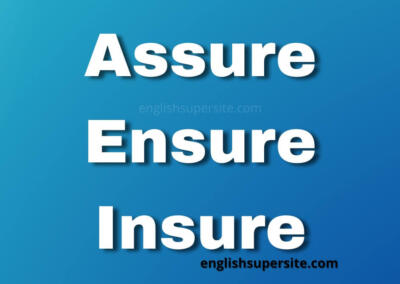
Assure, ensure and insure are commonly confused. Simply said, they all mean: to make sure or certain of something. ...

Quotes 2 - Study and learn English with inspiring and motivational quotes from various authors, successful ...

Learn when and how to use the prepositions IN, ON and AT. Understand the differences and why you should use them ...


